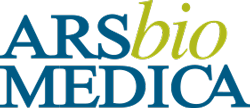The transesophageal echocardiogram is an advanced ultrasound examination that allows for morphological and functional study of the heart chambers and valves by inserting an ultrasound probe into the patient’s esophagus.
Utilizing the close anatomical relationship between the esophagus and heart, this method enables detailed visualization, beneficial for both diagnostic purposes and pre-operative surgical planning.
When is a transesophageal echocardiogram recommended?
The transesophageal echocardiogram is a valuable tool for clinical cardiologists, hemodynamic specialists, and cardiothoracic surgeons to obtain a precise diagnosis and guide the patient towards the most appropriate therapeutic pathway in cases where the transthoracic echocardiogram is inconclusive.
The examination is indicated for:
- Patients with inadequate transthoracic acoustic windows.
- Patients with suspected endocarditis.
- Patients with a patent foramen ovale (PFO) or atrial septal defect (ASD).
- In the presence of heart valve prostheses (which may create reverberations or low-quality images, making the transthoracic examination inconclusive).
- Preoperative evaluation of valvular pathologies.
- Prior to electrical or pharmacological cardioversion of non-datable atrial fibrillation to exclude the presence of thrombotic formations.
- In catheterization labs as intraoperative guidance during procedures for structural heart diseases (closure of atrial septal defects, closure of PFO, closure of the atrial appendage, MitraClip).
How is the examination conducted at Clinic Arsbiomedica?
The examination involves the insertion of an ultrasound probe into the patient’s esophagus. The patient is positioned on the examination table and monitored. A peripheral venous access is established, and the physician proceeds with the insertion of the probe into the oropharyngeal canal, which may cause discomfort but does not impede respiratory function. To reduce discomfort, an oral spray with local anesthetic or intravenous sedation is used, with an anesthesiologist present if necessary.
The duration of the examination ranges from 15 to 30 minutes depending on the diagnostic question.
At the end of the procedure, the patient is observed for 30 minutes if sedation was administered, and it is advisable for them to be accompanied to avoid driving immediately afterward.
It is recommended not to eat or drink for 2-3 hours after the examination.
How to prepare for a Transesophageal Echocardiogram:
Contradictions to the examination are discussed with the physician during the medical history, with main impediments typically related to certain esophageal pathologies.
In preparation for the examination, it is necessary to:
- Fast for solids and liquids for at least 6 hours.
- Remove any removable dentures.
Additionally, the patient is required to bring their clinical documentation.
Trust our professionals
Contact
Request Information
Do you need a medical visit or an exam?
Choose the best care for yourself
Choose the best care for yourself



